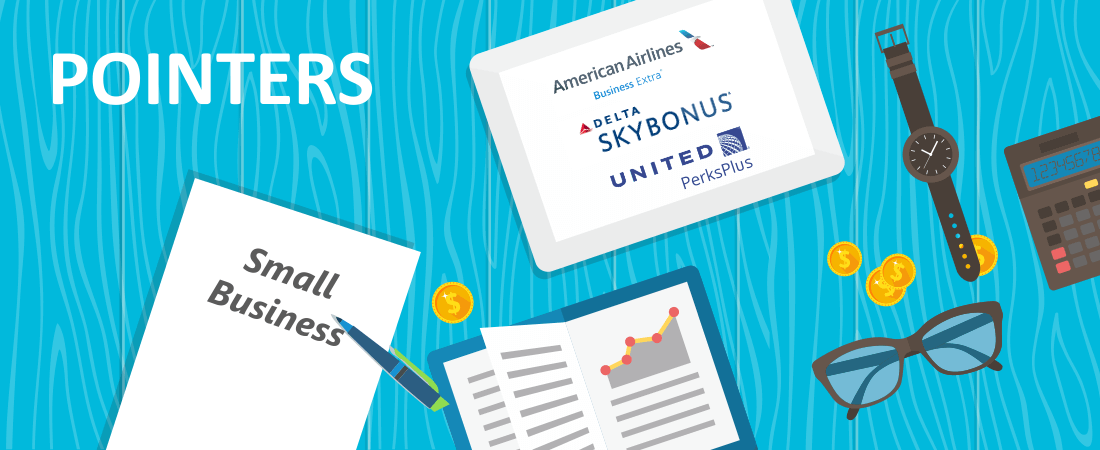
Big companies get discounts and special deals for committing their business to one airline. This is often done behind the scenes and is a common and expected practice among airlines. It might even include complimentary elite status and fee waivers for corporate travelers.
But what about smaller companies? Isn’t their business valuable, too? Isn’t that the entire idea behind loyalty?
With airlines launching loyalty programs that ding travelers even further based upon how much they spend versus how far they travel, many flyers that remained loyal to one carrier now see it as the nail in the coffin. It’s as if showing loyalty to one airline no longer matters since it is all based upon how much you spend.
Those that work for smaller companies are often forced to buy the lowest fares far in advance and are not privileged with extra perks like bigger businesses. But small business owners can access similar benefits if they know where to look.
It seems that airlines don’t care because they are focused only on those big contracts. That’s why these small business programs were created. They give smaller companies added benefits for staying loyal without the same overall spend or volume of travel that comes from larger companies.
This means that businesses with at least five travelers (in most cases) can sign up. The definition of employee is loose, and all that is required is a tax identification number to sign up.
With that said, this is a great way to double dip since miles are still earned by the traveler, but points based upon the cost paid is also earned by the small business. As long as a company does not have its own sales agreement with the airline, these programs offer great value. These are the top three programs and what they offer.
American BizExtrAA
Despite a horrible interface and slow customer service, this is a solid way to rack up bonus points for those that travel on American, British Airways, Finnair, and Iberia. For every $10 a business spends, the company accrues two points. These points can then be redeemed for awards, but it takes significant amounts of spend to reach even the lowest award.
Award options include free domestic flights for as little as 2,000 points roundtrip and flights to Europe for as little as 7,200 points. Other redemption options include annual elite status offers and Admirals Club membership. The cheapest award is 300 points, which is a day pass to the Admirals Club. Any of these awards can be gifted to anyone.

Common complaints with the program are that points do not always post properly, and sometimes it requires calling or emailing the program with ticket numbers from past travel. There is no minimum number of travel spend or employees required to participate.
Delta SkyBonus
Delta’s program is a bit more organized than American’s. For starters, the program website allows you to enter ticket numbers directly online. Points almost always post properly, but it is advisable to always monitor them.
Delta’s program also permits tickets from its joint venture partners Air France, Alitalia, and KLM when traveling on tickets issued in North America. Flights using Delta Private Jets are also eligible for accrual.
Points in the program are earned at various ratios depending upon whether they are from hub cities or not (punishing those with Delta as their primary nonstop choice flying from a hub city).
Discounted fares earn just one point per dollar spent where some of the most expensive fares earn as much as 30 points per dollar spent. If you live in a hub city and buy expensive fares, you only earn 10 points per dollar spent. When companies earn 2 million points in a calendar year in the program, they are eligible for SkyBonus elite status, which tacks on more points per dollar spent.
To participate, a company must have at least give active travelers and spend at least $5,000 per year on travel in the program. Points can be redeemed for everything from free drink vouchers (10,000 points for 10 coupons) and Sky Club membership (125,000 points for individual membership) to business class tickets anywhere the airline or its partners fly (as few as 460,000 points).
United PerksPlus
Like Delta, United PerksPlus requires that there are at least five travelers participating in the program to be eligible. Luckily, the program also has even more airlines that qualify including United, ANA, Austrian, Brussels, Copa, Lufthansa, and Swiss International.
Also similar to Delta’s program, those traveling from hub cities with less competition for nonstop travel are punished with fewer points per dollar spent. Hub fliers on the cheapest fares earn one point per dollar spent while non-hub fliers earn two points. Hub fliers on the most expensive premium cabin fares earn three points per dollar spent while non-hub fliers earn six points.
There are plenty of excellent awards in the program like roundtrip business class to Europe for 400,000 points and United Club membership for 65,000 points. Premier Silver status (60,000 points) and Premier Gold status (120,000 points) are also great for travelers that aren’t flying enough to maintain status under the new mileage earning and spending requirements.


